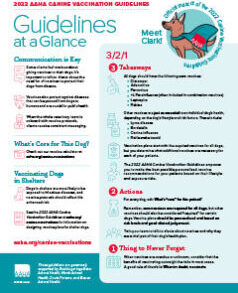Animal therapy, also called pet therapy or animal-assisted therapy, is any type of therapy that integrates dogs, horses, and other animals.
It can be used to help people with a wide range of challenges, from helping to build communication skills in autistic children to managing grief, loss, and stress in older adults. Animal therapy can be used alone or with other treatment options including medications and talk therapies.
This article will explain types of animal therapy, the conditions in which animal therapy may offer benefits, who facilitates and provides animal therapy, and more.
Kali9 / Getty Images
How Animal Therapy Works
Animals used for animal therapy are specifically trained to provide affection and comfort. They are often confused with service and emotional support animals, but all three differ:
- Therapy animals are trained to provide comfort and affection. They’re encouraged to interact with a variety of people.
- Emotional support animals are similar but only work with their owner. Additionally, emotional support animals do not have special training.
- Service animals are specifically trained to perform tasks for people with disabilities. They may help a blind person navigate their surroundings or alert someone at the first sign of seizures.
Where Animal Therapy Is Offered
Animal handlers and their trained animals provide animal therapy. These services may be provided in various ways. Animal therapy can take place at a designated facility, like stables for equine (horse) therapy. Or, therapy animals may visit schools, assisted living centers, natural disaster sites, or other places. They can be part of programs in hospice care or on-site at correctional facilities.
Benefits of Animal Therapy
There are many benefits of animal therapy that go well beyond feelings of comfort and emotional support.
Studies have found animal therapy to effectively help people to relax, have breakthroughs in the talk therapy process, lower blood pressure and slow heart rate, regulate hormones, and improve interactions and behaviors, among other things.
Risks of Animal Therapy
Animal therapy is generally considered safe. However, people who are afraid of animals or who don’t like them may not be a good fit for animal therapy. The experience could cause additional stress that outweighs the potential benefits.
People with compromised immune function should check with their healthcare team prior to trying animal therapy because animals may carry diseases without their handlers being aware of them. Those with allergies or open wounds that could be infected also should be cautious.
Conditions Treated
Therapy animals support people with emotional and mental health challenges. They may also support people with physical health conditions in coping with those conditions’ emotional and mental components, or helping to reduce the amount of medication they take.
Studies suggest that people who pet animals experience the release of serotonin, prolactin and oxytocin hormones that can play a part in elevating moods.
There has been other research showing the effectiveness of therapy animals in improving physical health conditions. For example, animal-assisted therapy can be used to reduce high blood pressure. Other conditions where benefits may be seen include:
Who Is Eligible?
Eligibility for animal-assisted therapy depends on your condition, your insurance coverage or other support for therapy, and connecting with an available program. Requirements for animals depend on the facility or location, as therapy dogs do not have the same legal status as service dogs. Some requirements may include training certification, registration, insurance, or vaccination.
Types of Animals Used
The most common type of animal used for animal therapy is a dog but other animals can be a therapy animal, too. Some types of animals are used more often because they’re compatibile with services provided.
Regardless of the species, it is important that therapy animals are well-trained, comfortable with lots of different people, and have a personality that is appropriate for the settings where they work.
Therapy animals may include:
- Dogs
- Cats
- Horses
- Birds
- Rabbits
- Guinea pigs
- Small reptiles
Summary
Animal therapy is the use of an animal to provide comfort, emotional support, and therapeutic care to people with a variety of health challenges in different situations. It is often used for mental health conditions such as anxiety, depression, grief, and post-traumatic stress disorder, but can also be used for physical conditions and the emotional component of physical disease.
Most therapy animals are dogs, but cats, horses, rabbits, and any species can be used as long as they are well-trained and compatible with the services they provide to the people needing help.
Eligibility depends on the care setting and the condition of the person to receive the therapy. Animal therapy has many favorable outcomes, including relaxation, talk therapy breakthroughs, relief of symptoms, and overall improved well-being.
This post was originally published on this site be sure to check out more of their content.








































